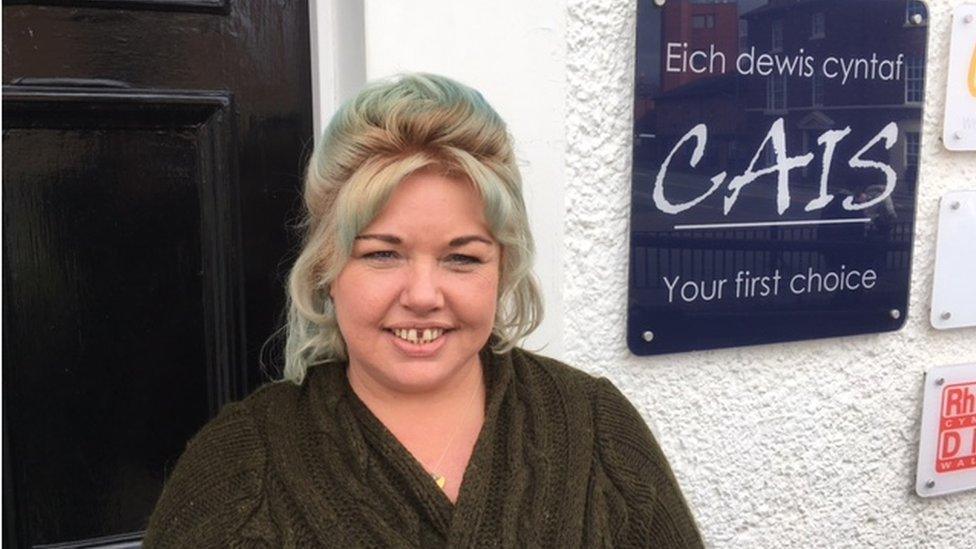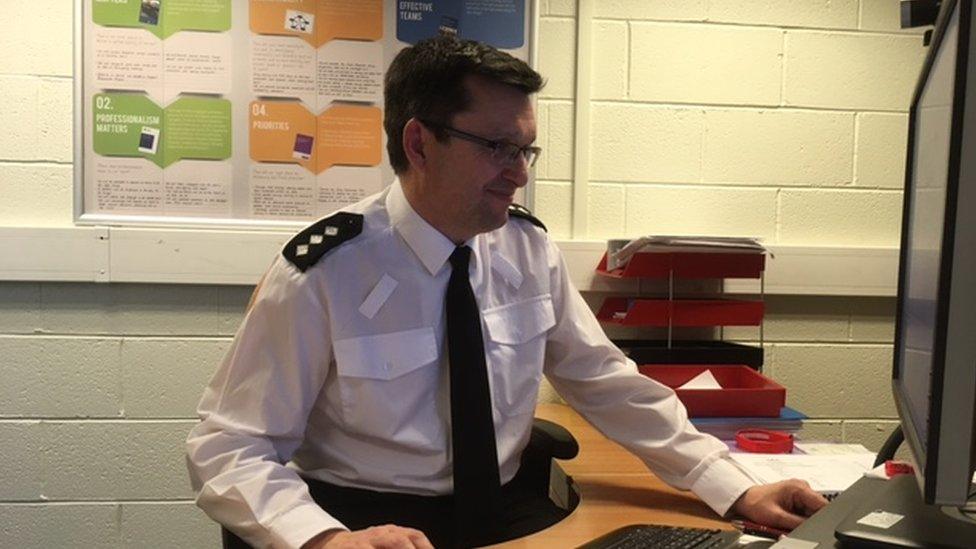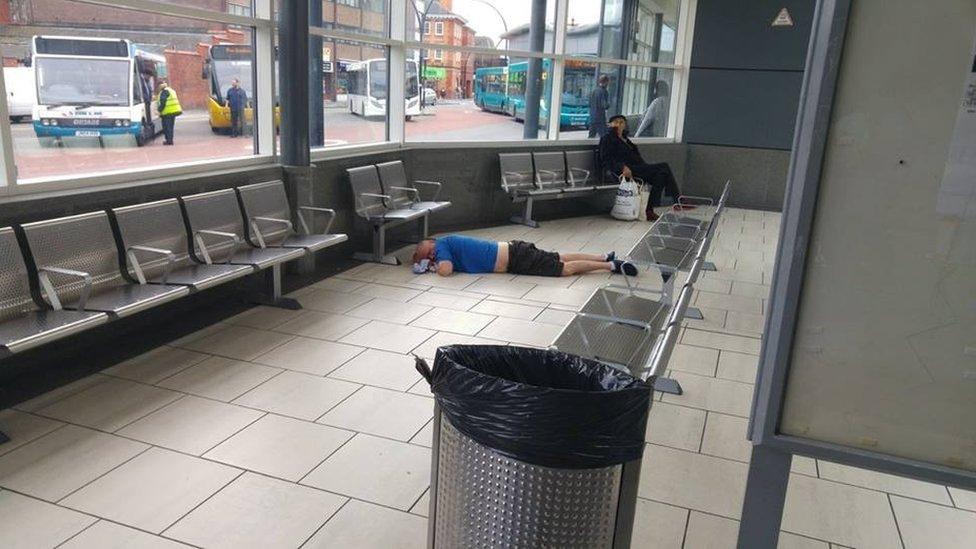Is there a drug problem in Wrexham?
- Published
Black Mamba drug turns Wrexham user into 'zombie'
When pictures of people apparently high on drugs in Wrexham's bus station were posted on social media earlier this month, it prompted claims by some the town has a major drugs problem.
But does it? Is the problem any worse than it ever was in north Wales' biggest town, and are Wrexham's problems any worse than any other similarly-sized area?
Lisa is a former drug addict. By her own admission, she used to take every drug available to her. She has been five years in recovery though, and now works with charity and support services provider CAIS, trying to help users who want to go into recovery.
Few know Wrexham's drug scene better than her, and she does not believe the number of drug users in Wrexham has increased in the last decade. Nor does she believe Wrexham's drug problem is any worse than any other comparable town.
"I think it's everywhere," she said. "This problem is everywhere in all towns. Some are just hidden more than others."
What has changed dramatically though, is the type of drugs many people are now using. New Psychoactive Substances (NPS) - some of which were formerly known as so-called "legal highs" - are now the choice drug of many users.
"People are taking that (NPS) more than they're taking heroin," said Lisa.

Lisa, a former addict, now works with a drug charity helping others
"Heroin's dropping, crack cocaine is dropping and the NPS in increasing. I believe it's because it's cheaper, the quality's better - the quality of that man-made drug is better."
Lisa also describes NPS as "sociable drugs," which users tend to take with others. Often, she says, users congregate together to take the drugs, making the problem more visible, and possibly creating a perception drugs use is rising.
Frighteningly strong
NPS are typically much cheaper than heroin or other drugs, and can be bought, Lisa says, for about £5. She also knows of some users buying single-hit "one-pops" for as little as £1.
Despite their price, she says the NPS are frighteningly strong - often more powerful than heroin.
"They are stronger. From the effects we're seeing with people, they are definitely stronger, and that's why a lot of heroin users are now swapping to the NPS."
She says some users are left "zombified".
"They don't know where they are; they don't know their own names. The first 10 minutes...they could easily walk out in the road. It really does dislocate them."
Harm reduction manager Carry Burton said her team had mainly seen a rise in NSPs in Wrexham
Lisa says that on average, a new batch of NPS hits Wrexham's streets every three weeks. They bear new names, and the effects on users often differ. Black Mamba is one of the better-known substances available in Wrexham.
The latest - which began to emerge a fortnight ago - is called Triple X. You know when a new batch hits the streets, she says, because users look like zombies as they adjust to the new effects. Some then develop a tolerance to it - until the next release comes along.
The constant release of new substances presents huge challenges for those trying to combat their effects.
Carry Burton is a harm reduction manager with the Betsi Cadwaladr University Health Board. She helps run a mobile outreach service for users.
Asked how worrying the new trend is, she says: "Certainly for us as a health service, it does pose serious concerns. We are worried about people's health. We are concerned about people's safety. For heroin users, if they overdose on heroin we have Naloxone that we can give to save lives. We can't do that with new psychoactives, so we have to find alternative interventions.
"We are...very keen to try and keep people healthy, but how best to do that still remains a bit of a question mark really for us all."
She believes other towns of a similar size probably experience similar problems to Wrexham. However, in north Wales - with the exception of the "odd little pocket here and there" - the harm reduction team are only witnessing the rise of NPS in Wrexham.
Some believe that could be because Wrexham has a relatively high concentration of charities or service providers which help drug users, homeless people, or others in need.

Dave Jolly, North Wales Police's chief inspector for the Wrexham area, says: "I think Wrexham is unique from the point of view of the visibility."
He adds: "I think what you've got now is a collective group of about 47 men and women who are generally moving from one service provision to another within their day...predominantly they hang around the town centre, so their visibility is enhanced."
While Lisa from CAIS believes many heroin users are now switching to NPS, Chief inspector Jolly says he knows of heroin users who are trying Black Mamba and "shunning it" because they don't like the "adverse reaction".
"If they're running away from it, then clearly there's something about it that's very sinister."
He admits the problem with NPS is probably going to get worse for Wrexham and other areas. A "joined-up approach" between health professionals and other services providers, supported by police, is what is needed to combat the problem, he says, and to try and "understand why these people are doing what they're doing".
- Published6 March 2017
